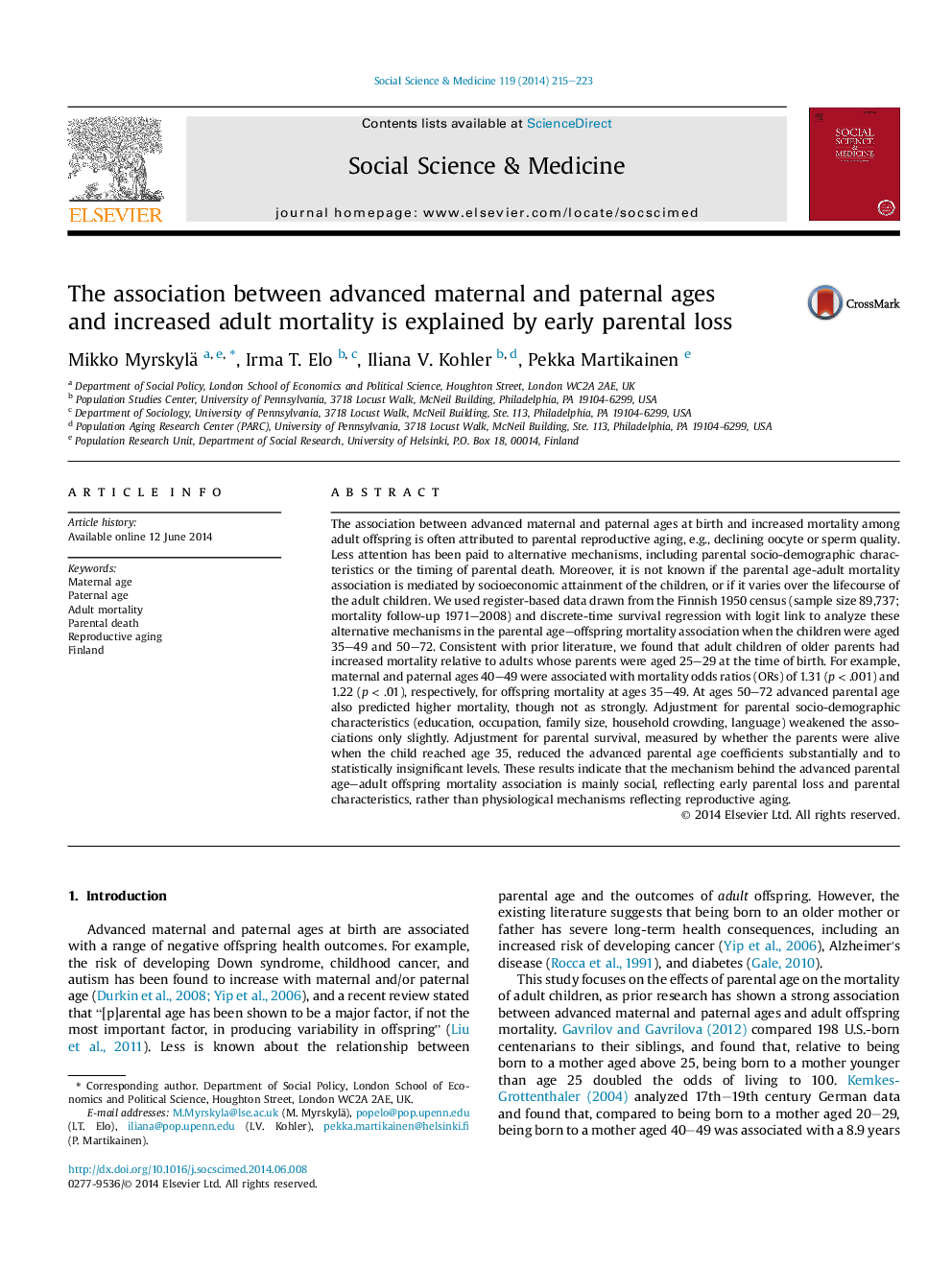| کد مقاله | کد نشریه | سال انتشار | مقاله انگلیسی | نسخه تمام متن |
|---|---|---|---|---|
| 7334266 | 1476049 | 2014 | 9 صفحه PDF | دانلود رایگان |
عنوان انگلیسی مقاله ISI
The association between advanced maternal and paternal ages and increased adult mortality is explained by early parental loss
ترجمه فارسی عنوان
ارتباط بین سن و جنس پیشرفته مادران و پدران و افزایش مرگ و میر بزرگسالان، با تلفات زودرس والدین توضیح داده شده است
دانلود مقاله + سفارش ترجمه
دانلود مقاله ISI انگلیسی
رایگان برای ایرانیان
کلمات کلیدی
سن مادر، سن پدر، مرگ و میر بزرگسالان، مرگ والدین، پیری تولید مثل فنلاند،
موضوعات مرتبط
علوم پزشکی و سلامت
پزشکی و دندانپزشکی
سیاست های بهداشت و سلامت عمومی
چکیده انگلیسی
The association between advanced maternal and paternal ages at birth and increased mortality among adult offspring is often attributed to parental reproductive aging, e.g., declining oocyte or sperm quality. Less attention has been paid to alternative mechanisms, including parental socio-demographic characteristics or the timing of parental death. Moreover, it is not known if the parental age-adult mortality association is mediated by socioeconomic attainment of the children, or if it varies over the lifecourse of the adult children. We used register-based data drawn from the Finnish 1950 census (sample size 89,737; mortality follow-up 1971-2008) and discrete-time survival regression with logit link to analyze these alternative mechanisms in the parental age-offspring mortality association when the children were aged 35-49 and 50-72. Consistent with prior literature, we found that adult children of older parents had increased mortality relative to adults whose parents were aged 25-29 at the time of birth. For example, maternal and paternal ages 40-49 were associated with mortality odds ratios (ORs) of 1.31 (p < .001) and 1.22 (p < .01), respectively, for offspring mortality at ages 35-49. At ages 50-72 advanced parental age also predicted higher mortality, though not as strongly. Adjustment for parental socio-demographic characteristics (education, occupation, family size, household crowding, language) weakened the associations only slightly. Adjustment for parental survival, measured by whether the parents were alive when the child reached age 35, reduced the advanced parental age coefficients substantially and to statistically insignificant levels. These results indicate that the mechanism behind the advanced parental age-adult offspring mortality association is mainly social, reflecting early parental loss and parental characteristics, rather than physiological mechanisms reflecting reproductive aging.
ناشر
Database: Elsevier - ScienceDirect (ساینس دایرکت)
Journal: Social Science & Medicine - Volume 119, October 2014, Pages 215-223
Journal: Social Science & Medicine - Volume 119, October 2014, Pages 215-223
نویسندگان
Mikko Myrskylä, Irma T. Elo, Iliana V. Kohler, Pekka Martikainen,
